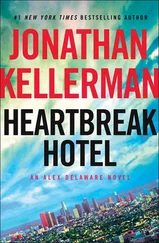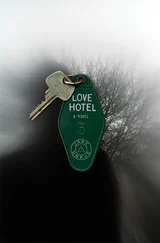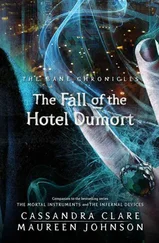And then I want to talk to you all the time.
You can say “My love,” and do nothing loving. Whenever you say it, I believe it.
It is a word without symptoms, unless you count those in me.
I am your word’s symptom.
Dora’s aphonia, said Freud, was a “conversion disorder” of mental into physical symptoms. The exchange rate was not set, but the conversion always happened. Aphonia is only one possible hysterical symptom, but it is not the complaint. Hysteria is the complaint.
Some women go to hotels in order to complain.
Some women go to hotels for a cure.
Others go for the talking cure.
Freud talked to Dora, then he talked about Dora (to herself), then he wrote about Dora. Through it all she continued to complain with her silent body, which could have meant anything. We don’t even see her. We can only read his words. Show the body; take the body away. Distance is the only cure. Getting away is a question not only of space, but time. And aphonia makes sense to me, even now.
FREUD
She had been listening, without contradicting as she usually did. She seemed moved, said goodbye as sweetly as anything, with warmest wishes for the new year and — never came back.
Freud will not call Dora back.
(You will not call me back.)
Dora will not demand a cure.
(I will not demand a cure.)
They will use no more words on each other.
(We will use no more words.)
Aphonia. If you won’t talk to me, at least I can write it down.
FREUD
She lived for her studies, and did not think of marriage.
In the end, Dora cured herself by talking, but not to Freud. She told Frau K she knew of her father’s affair. She “forced” (says Freud) Herr K to admit “the scene by the lake.” (It was a scene, like in a play, just as Freud told her: those canvas trees, those references to high art, that turned into sex.)
Herr K admitted Dora was right.
FREUD
One need only turn each individual reproach back on the speaker.
The right words had been there all the time.
Dora had only to wait for the right speaker.
II
On the screen, I keep checking the time: where I am, where you are, the thickness of hours between.
I cannot wait any longer.
The thick white hotel towels are restless. They want me to get into the water. There are the white pills. Usually you snap them in half, which makes a satisfactory sound — no, the echo of a sound, no noise.
My head put the noise in.
I cannot remember the time where you are. It’s in a different zone. I look. Then away, then back again. I still cannot remember.
What’s the right time? I can wait a little longer before we speak.
Whatever time it is you will not answer, not with anything I can hear.
There is no point looking up the time any more.
And then I know the time. But it’s no use. Whatever time it is where you are, what I say will disappoint you in the end.
White invites a sacrifice.
The square white bath has a crack across its corner. I turn on the tap. I get into the bath. It bends and bows. It circles the square. A pool pools underneath. I call room service. It is not my fault, but I must leave the room and walk through the white streets under the white sun until it is fixed.
It is not my fault.
The thing is: What am I allowed? If I don’t need anything in particular, what am I allowed to want? What should I do with this blank hotel opportunity for which I’ve worked so hard? Can I only see myself in what I want, and can I only want something when something else goes wrong?
When you’re not here, sometimes the problem doesn’t seem to be you. It doesn’t seem to be you at all.
Perhaps this is only ordinary unhappiness.
“To put it metaphorically: it is entirely possible that a diurnal thought should act as the entrepreneur for the dream; but the entrepreneur, who, as they say, has the idea and the drive to put it into action, can do nothing without capital; he requires a capitalist with the necessary outlay, and that capitalist, who provides the psychical outlay. is a desire from the unconscious.”
— SIGMUND FREUD, DORA: A FRAGMENT
Cast:
Freud:
a psychoanalyst
Dora:
a teenage girl
Kringelein:
a clerk
Gruskinskaya (Garbo):
a star
Raoul Vaneigem:
a philosopher
I
I went to my doctor, and described my symptoms.
My doctor said, “You’re not depressed, you’re oppressed.”
But then, she was not a therapist.
We used to watch old movies together, you and I. It was one of the things we didn’t fail to do. When there was something wrong with what was in front of us, which was surely not the same as what was real, we watched movies. That they were old movies helped: anything over was better than anything current. They were always on repeat, and always free. We could watch them over and over again, catching them at non-times, in the middle of white afternoons. As we withdrew further into the movies, the more we leant toward the things in them, until we could recognize ourselves in them, or thought we could. We watched movies from the era when, and the places where, people lived in hotels, and many of the movies were about hotels, more than were about homes. A hotel is easy to recreate on a sound stage, because it looks just like a set. A hotel is a dream and must avoid the disappointments of the actual, but it requires something physical: an entrepreneur to provide the furniture for desire. And it is made of both human and inhuman materials.
An evening alone in hotel world: On the inedible room service menu, a list of hermetically sealed in-hotel channels. I look for something that will square both our moods: the hotel’s and mine. The biggest category is “fantasy and adventure,” candy-colored: nothing I do here will matter. There are also video games; this hotel’s less for playboys than for boys who like to play. I look for a hotel movie. When I type “hotel” I don’t know what language I’ll get: hotel is the same word round the globe. I find Grand Hotel (Goulding 1932). I’ve seen it before. Its black and white matches my room’s theme but the Grand Hotel doesn’t remind me of any hotel I have visited. In the opening centrifugal spin around its circular reception desk, shot from above, more guests come and go than in the lonely lobbies where I have lingered. To make himself heard, dying clerk Kringelein (Lionel Barrymore) must shout into the lobby’s public telephone about the most private things: “HE SAYS I WON’T LIVE MUCH LONGER!” You’d imagine the hotel bar and ballroom were the most popular spots in town, yet Greta Garbo went there “to be alone.”
“A private room with a bath!” demands Kringelein, who has come to the Grand Hotel to spend his last pennies. He demands a more impressive room, and finds exclusivity is the long climb to the loneliness of the fifth floor. Even there, privacy is always being invaded. Typist Flaemmchen (Joan Crawford) catches her employer Preysling (Wallace Beery) in his bath, and jewel thief/Baron (John Barrymore) climbs from balcony to balcony, peering through each window in search of an easy mark. I want to be alone!
Privacy is the Grand Hotel’s most expensive luxury, but to be served is to be known. In her suite, Grusinskaya’s (Garbo) gowns spill out of her cases. You can see everything, but there’s nothing to get a grip on. The eye slips off furnishings of blurred satin. Everything is white: her dresses, her sheets, her delightful body, her pearls, but she is the only character that is never alone. Watched by her maid even when asleep, she exists only in front of an audience. There is no privacy in the Grand Hotel.
Читать дальше












